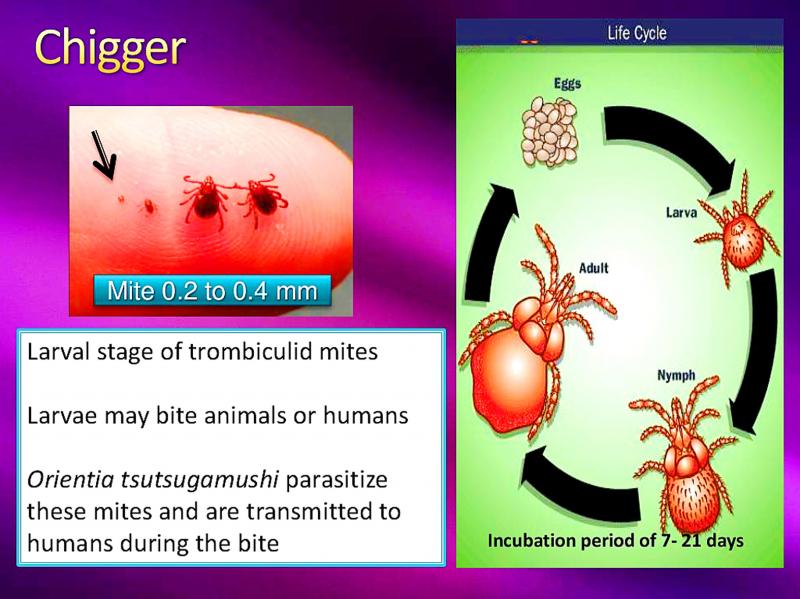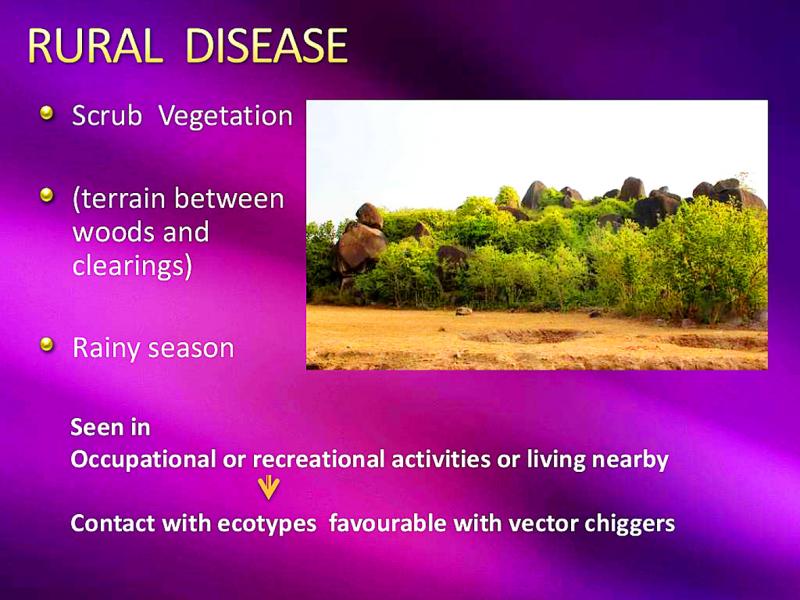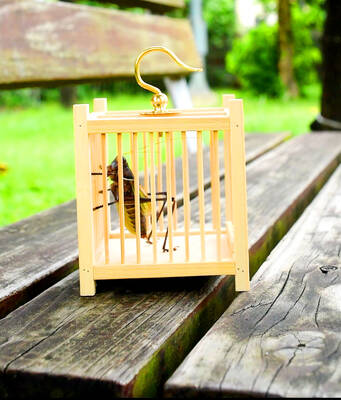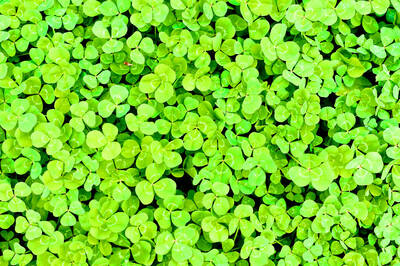At the beginning of April, there will be a long weekend for Qingming Festival (Tomb Sweeping Day) and Children’s Day. Many people will go out for pleasure trips or tomb sweeping, and when they do, they should guard against mosquitos and other bugs. According to the Centers for Disease Control (CDC), the high season for chiggers, which can transmit scrub typhus, is approaching.
Scrub typhus cases occur all year round in Taiwan, but every year the number of reported cases starts to rise from April to May, peaking in June to July, with more cases in Hualien, Taitung and the outlying islands. CDC surveillance data shows that there have been 27 cases this year up to March 15, including 12 cases in Hualien and Taitung counties. The cumulative number of cases this year is lower than the 2019 and 2020 figures of 43 and 37 cases respectively for the same period.
Scrub typhus is transmitted by the bite of rickettsia-carrying chiggers, which lurk in areas of scrubby vegetation, waiting for the opportunity to attach themselves to passing humans or other animals. Scrub typhus has an incubation period about nine to 12 days. Patients will have symptoms such as a persistent fever, headache and swollen lymph nodes. After about a week of fever, red papules will appear on the skin. Eschars usually form at the site of chigger bites and are an important characteristic of this illness.

Photo: Bharat Malhotra 照片:Bharat Malhotra
The CDC urges people to take personal precautions if they are likely to come into contact with a scrubby environment when engaging in outdoor activities such as sweeping tombs, worshipping ancestors or hiking. Precautions include wearing protective clothing such as light-colored long-sleeved clothes, long pants, long socks, boots and gloves, and tucking one’s pants into one’s socks.
You should also apply government-approved mosquito repellants containing DEET or Picaridin on your clothing and exposed areas of skin, as directed by the instructions on the label.
In addition, you should shower and change all your clothes as soon as possible after leaving the scrubland to avoid being bitten by any chiggers that may be attached to them. If you have any suspected symptoms, you should seek medical attention as soon as possible and inform your doctor about what you have been doing and whether you have been in any scrubland, so as to obtain a timely diagnosis, notification and treatment.

Photo: Bharat Malhotra 照片:Bharat Malhotra
(Translated by Julian Clegg, Taipei Times)
四月初就是清明連續假期、兒童節,許多民眾外出遊玩或掃墓應注意防蚊蟲;疾病管制署提醒,會傳染「恙蟲病」的恙蟲好發季節快到了。
台灣全年都有恙蟲病病例,歷年通報數自四至五月開始呈現上升,六至七月達高峰,於花東及離島地區感染病例數較多。疾管署監測資料顯示,今年截至三月十五日累積二十七例,其中花東地區感染個案十二例;累計病例數低於二○一九及二○二○年同期分別為四十三及三十七例。
恙蟲病是由帶有立克次體的恙?叮咬而傳染,恙?會停留於草叢中,伺機攀附到經過的人類或其他動物身上。恙蟲病的潛伏期約九至十二天,患者會出現持續性高燒、頭痛、淋巴結腫大等症狀,約發燒一週後,皮膚出現紅色斑狀丘疹,恙蟲叮咬處通常會出現焦痂,是此疾病的重要特徵。
疾管署呼籲,民眾從事掃墓祭祖或踏青等戶外活動時,如有接觸到草叢環境,務必做好個人防護措施,包括穿著淺色長袖衣、長褲、長筒襪、長靴及手套等保護性衣物,並將褲管紮入襪內。
在衣物及皮膚裸露部位,依照標籤指示說明使用政府機關核可含敵避(DEET)或派卡瑞丁(Picaridin)成分的防蚊藥劑。
此外,離開草叢後請儘快沐浴及換洗全部衣物,避免恙?附著叮咬,如有疑似症狀,應儘速就醫並告知醫師相關活動史,或有無出入草叢等暴露史,以及時診斷、通報及治療。
(自由時報)

The content recommendation algorithm that powers the online short video platform TikTok has once again come under the spotlight after the app’s Chinese owner ByteDance signed binding agreements to form a joint venture that will hand control of operations of TikTok’s US app to American and global investors, including cloud computing company Oracle. Here is what we know so far about its fate, following the establishment of the joint venture. IS BYTEDANCE CEDING CONTROL? While the creation of this new entity marks a big step toward avoiding a US ban, as well as easing trade and tech-related tensions between Washington and Beijing, there

A: Compared to Taiwanese, what did Americans search for most in 2025? B: No. 10 to No. 6 are: Tariffs, FIFA Club World Cup, government shutdown, DeepSeek and incoming New York mayor Zohran Mamdani. A: Mamdani is set to take office on Jan. 1. And what are the top five? B: No. 5 to No. 1 are: the One Big Beautiful Bill Act, iPhone 17, Labubu doll, animated blockbuster KPop Demon Hunters and political activist Charlie Kirk’s assasination. A: The only term to appear on both the Taiwanese and US charts is tariffs. A: 跟台灣人相比,美國人都在搜尋什麼? B: 第10到6名是:關稅、FIFA俱樂部世界盃、政府關閉、DeepSeek語言模型、候任紐約市長佐蘭曼達尼。 A: 曼達尼元旦即將就任,前5名是什麼? B: 第5到1名是:《大而美法案》、iPhone 17、拉布布玩偶、動畫片《KPop獵魔女團》、政治活動家查理柯克遇刺。 A: 看來台、美熱搜榜唯一的共同議題就是--關稅! (By Eddy Chang, Taipei

The world is teeming with danger and unpredictability. To safeguard themselves from harm and invite good fortune, people across cultures carry or display symbolic charms and trinkets. It is common to see beckoning cat figurines in stores in Japan, while people in China have historically kept crickets in cages for good luck. Even flora can serve as emblems of luck, with the four-leaf clover standing out as perhaps the most iconic. A clover is a small plant that typically grows 10 to 30 cms in height. While there are many species of clover, the variety that people consider to

Continued from yesterday(延續自昨日) https://www.taipeitimes.com/News/lang Many people attribute the four-leaf clover’s reputation for luck not merely to its rarity but also to the myths and legends that surround it. Here are two such tales that help shed light on how the four-leaf clover came to be seen as a lucky charm. The first story originates from the Biblical narrative of Adam and Eve. According to Christian tradition, Adam and Eve, the first humans created by God, resided in the idyllic Garden of Eden. After they were expelled for defying God’s command, Eve is said to have plucked a four-leaf clover as a